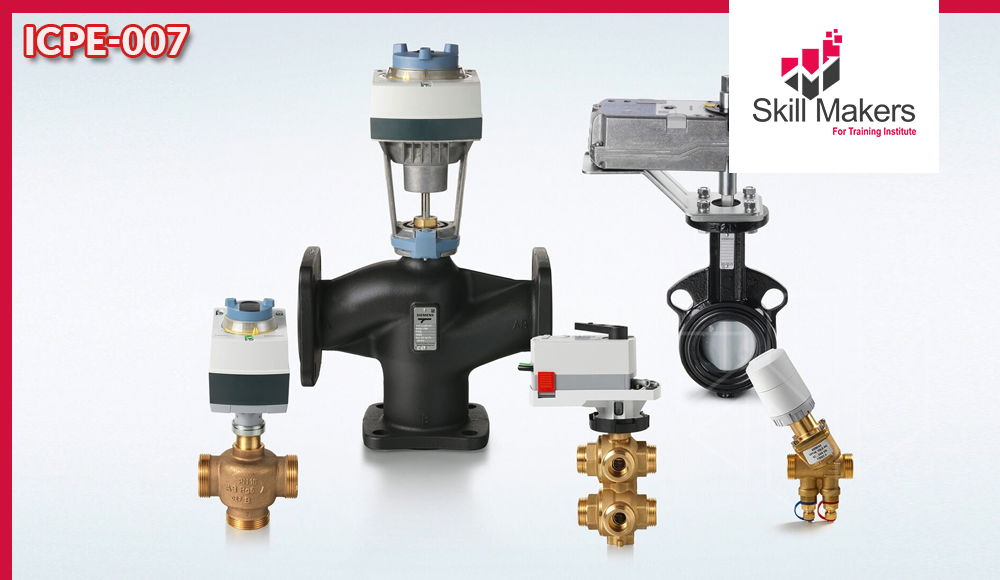-
Course Code
ICPE-007

Control Valves and Actuators
- Valves are an increasingly vital component of modern Power Generation Plants around the world. Well–selected and maintained control valves increase efficiency, safety, profitability, and ecology. The course offers an introduction to control valves including definitions for common control valve and instrumentation terminology.
- Develops the vital topic of control valve performance. Covers valve and actuator types. Gives a comprehensive guide to selecting the best control valve for an application. Covers the selection and use of special control valves. Offers typical control valve installation and maintenance procedures. Includes information on control valve standards and approval agencies throughout the world.
Learning Outcomes
- Comprehend the inner operation of most commonly utilized valve types
- Decide on the best valve to use, for specific applications
- Determine the most cost-effective valve size
- Determine the best device to drive and operate an assortment of valves
- Get control valves to operate optimally in the field, using an assortment of techniques
Course Contents
- Valve Principals, Purposes, Types, Control Signals and Flow Conditions
- Flow Conditions in and around Valves
- Reynolds Numbers
- Cavitation and Flashing and How This Influences Valve Selection
- Associated Equipment - Pertinent to Valves
- Definitions and Principles of Operation of the Major Types of Valves
- Valve in P&IDs, Leakage, Valve Characteristics and Valve Size Calculations
- Continuation of the Definitions and Principles of Operation of more Major Types of Valves
- P&ID Diagrams associated with Valves
- Valve Leakage and Valve Leakage Rate Calculation
- Valve Inherent Characteristics and their importance once installed
- Performing Manual Calculations - for Valve Sizing
- Valve Software, Actuators, Positioners, Cavitation & Noise Control & SIS
- Assorted Actuators and their Properties and Characteristics
- Valve Positioners
- Cavitation and Noise Control - in and around valves
- 3-term Controllers and Loop-tuning for Processes Containing Control Valves
- Understanding and Implementing the Right Controller Action - for fail-safe valves
- Understanding all of the Variables - associated with three-term control
- Open Loop Tuning - for controllers that act on control valve loops
- Closed Loop Tuning - for controllers that act on control valve loops
- Setting-up a Cascade Loop - using a single valve and multiple controllers
- Setting-up a Ratio Loop
- Dead Time Dominant Loops
- Combining PLCs - for valve control
Our Methodology
- Make coaching and monitoring innovative and using modern
- Media training also using on the go training by using interactive means and focusing on
- The exercises, practical applications and real situations study
- Live delivery method, instructor-led training
- Experienced consultant, trainers, and professional
- Qualified trainer with high-level experience
Attendance Reports
- Send daily attendance reports to training departments
- Send full attendance report to training dep. by the end of the course
- Attend 100 % from the course days also provide daily
- Issue attendance certificate for participant who attend minimum 80% from the course duration
Pre/Post Reports
- Pre- assessment before starting training
- Post assessment after finish training
- Full report for the deferent between Pre-& Post assessment
Who Should Attend
- Instrumentation personnel involved in valve maintenance
- Management and staff responsible for valve and actuator selection
- Mechanical and electrical staff that meet valves
- Process control engineers requiring
- Designers, industrial engineers and staff responsible for plant safety
